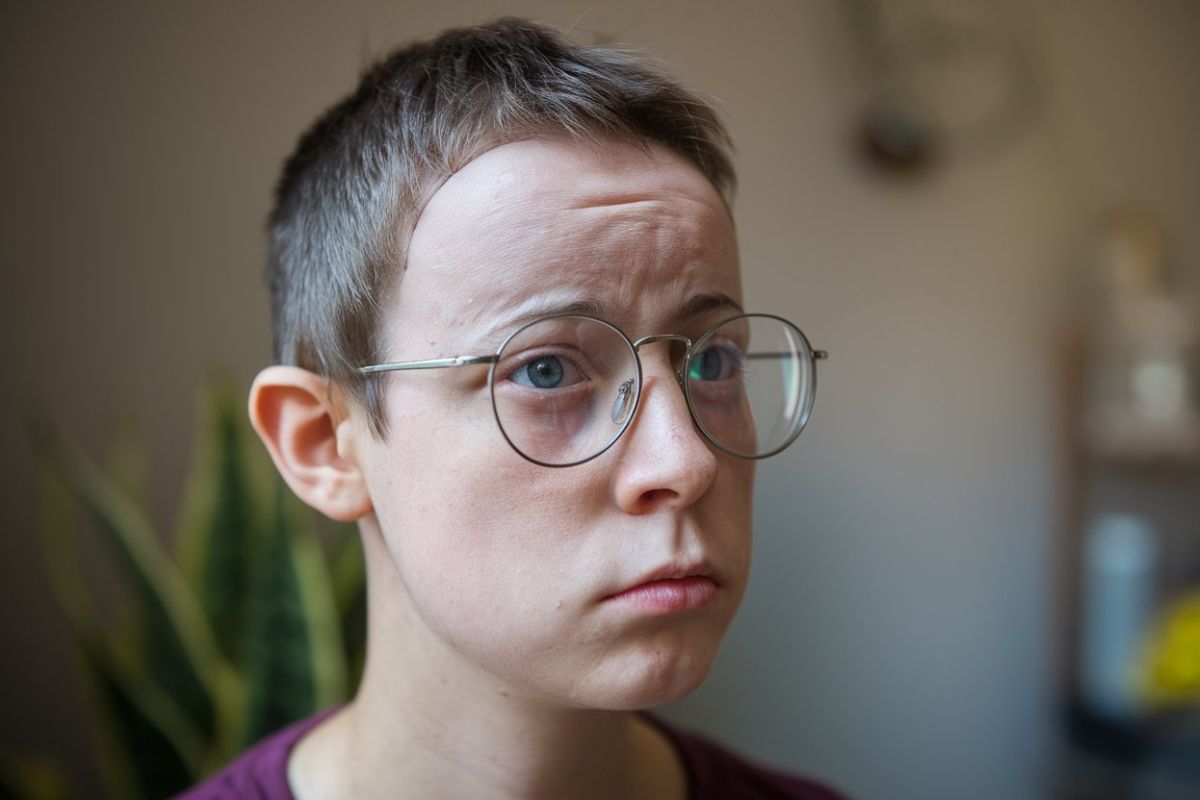
Rosenthal-Kloepfer Syndrome is a rare genetic disorder that affects the development of bones and other tissues. This condition can lead to distinctive facial features, limb abnormalities, and other health issues. Understanding this syndrome is crucial for those affected and their families, as it can help in managing symptoms and improving quality of life. In this blog post, we'll dive into 30 fascinating facts about Rosenthal-Kloepfer Syndrome to shed light on its causes, symptoms, and treatments. Whether you're a medical professional, a student, or someone looking to learn more about this rare condition, these facts will provide valuable insights.
Key Takeaways:
- Rosenthal-Kloepfer Syndrome is a rare neurological disorder that causes facial paralysis, swelling, and a fissured tongue. It can lead to speech difficulties, eating challenges, and psychological distress, but ongoing research offers hope for better management and treatment options.
- With an estimated prevalence of 8 in 10,000 people, Rosenthal-Kloepfer Syndrome is a rare condition that requires a multidisciplinary approach for comprehensive care. Early diagnosis and intervention, along with ongoing research, offer hope for improved quality of life and possibly a cure in the future.
What is Rosenthal-Kloepfer Syndrome?
Rosenthal-Kloepfer Syndrome, also known as Melkersson-Rosenthal Syndrome, is a rare neurological disorder. It primarily affects the face and is characterized by recurring facial paralysis, swelling, and a fissured tongue. Here are some intriguing facts about this condition.
-
Rare Disorder: Rosenthal-Kloepfer Syndrome is considered rare, with an estimated prevalence of 8 in 10,000 people.
-
Facial Paralysis: One of the hallmark symptoms is recurring facial paralysis, which can affect one or both sides of the face.
-
Swelling: Patients often experience swelling of the face and lips, which can be sudden and recurrent.
-
Fissured Tongue: Another common symptom is a fissured or cracked tongue, which can appear as deep grooves on the surface.
-
Genetic Factors: There is evidence suggesting a genetic predisposition, as the syndrome sometimes runs in families.
-
Onset Age: Symptoms typically begin in childhood or early adulthood, but can start at any age.
-
Diagnosis: Diagnosis is primarily clinical, based on the characteristic symptoms, as there are no specific laboratory tests.
-
Biopsy: A biopsy of the affected tissue can help confirm the diagnosis by showing granulomatous inflammation.
-
Treatment: Treatment often involves corticosteroids to reduce inflammation and swelling.
-
Surgery: In severe cases, surgical procedures may be necessary to relieve pressure on facial nerves.
Symptoms and Complications
Understanding the symptoms and potential complications of Rosenthal-Kloepfer Syndrome can help in managing the condition more effectively.
-
Recurring Episodes: Symptoms can come and go, with periods of remission and flare-ups.
-
Chronic Swelling: Chronic swelling can lead to permanent changes in facial appearance.
-
Speech Difficulties: Swelling and paralysis can cause difficulties in speech and articulation.
-
Eating Challenges: A fissured tongue and facial paralysis can make eating and swallowing challenging.
-
Eye Problems: Facial paralysis can affect the ability to close the eyes, leading to dryness and irritation.
-
Psychological Impact: The visible symptoms can lead to psychological distress and social anxiety.
-
Misdiagnosis: Due to its rarity, the syndrome is often misdiagnosed as other conditions like Bell's palsy or angioedema.
-
Inflammation: Chronic inflammation can cause tissue damage over time.
-
Nerve Damage: Repeated episodes of facial paralysis can lead to permanent nerve damage.
-
Medication Side Effects: Long-term use of corticosteroids can have side effects like weight gain, high blood pressure, and osteoporosis.
Research and Advances
Ongoing research and medical advances are shedding light on Rosenthal-Kloepfer Syndrome, offering hope for better management and treatment options.
-
Genetic Research: Studies are being conducted to identify specific genetic markers associated with the syndrome.
-
New Treatments: Researchers are exploring new treatments, including biologics and immunosuppressants.
-
Patient Registries: Patient registries are being established to collect data and improve understanding of the syndrome.
-
Awareness Campaigns: Efforts are being made to raise awareness among healthcare professionals to reduce misdiagnosis.
-
Support Groups: Support groups and online communities provide valuable resources and emotional support for patients and families.
-
Clinical Trials: Clinical trials are ongoing to test the efficacy of new drugs and therapies.
-
Multidisciplinary Approach: A multidisciplinary approach involving neurologists, dermatologists, and speech therapists is recommended for comprehensive care.
-
Early Intervention: Early diagnosis and intervention can improve the quality of life for patients.
-
Personalized Medicine: Advances in personalized medicine are paving the way for tailored treatment plans based on individual genetic profiles.
-
Future Prospects: With continued research and medical advancements, there is hope for more effective treatments and possibly a cure in the future.
Final Thoughts on Rosenthal-Kloepfer Syndrome
Rosenthal-Kloepfer Syndrome, though rare, offers a fascinating glimpse into the complexities of human genetics. Understanding its symptoms, causes, and treatments can help those affected and their families navigate this challenging condition. Early diagnosis and intervention are crucial for managing symptoms and improving quality of life. Genetic counseling can provide valuable insights for families, helping them make informed decisions about their health. While research continues, raising awareness about this syndrome can lead to better support and resources for those impacted. By staying informed and advocating for further studies, we can hope for advancements in treatment and care. Remember, knowledge is power, and sharing information about rare conditions like Rosenthal-Kloepfer Syndrome can make a significant difference in the lives of those affected.
Frequently Asked Questions
Was this page helpful?
Our commitment to delivering trustworthy and engaging content is at the heart of what we do. Each fact on our site is contributed by real users like you, bringing a wealth of diverse insights and information. To ensure the highest standards of accuracy and reliability, our dedicated editors meticulously review each submission. This process guarantees that the facts we share are not only fascinating but also credible. Trust in our commitment to quality and authenticity as you explore and learn with us.
